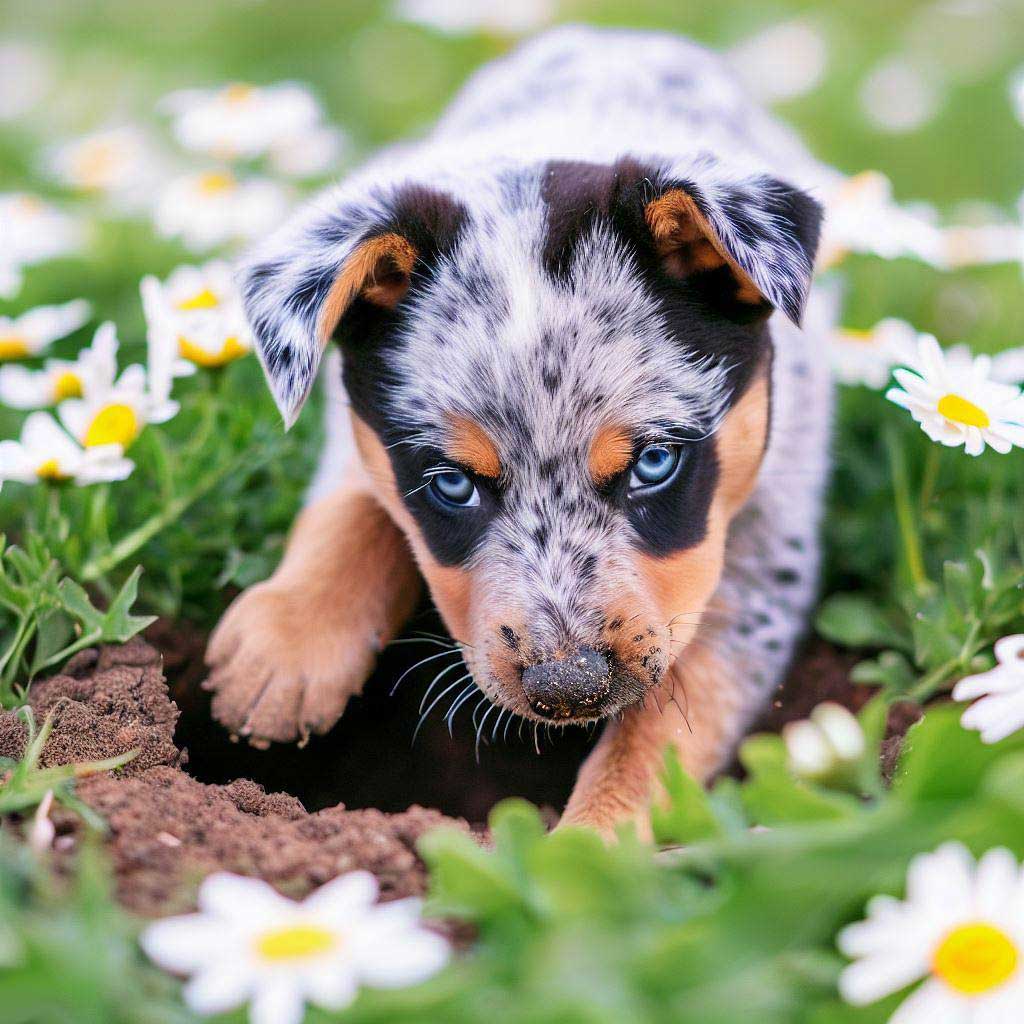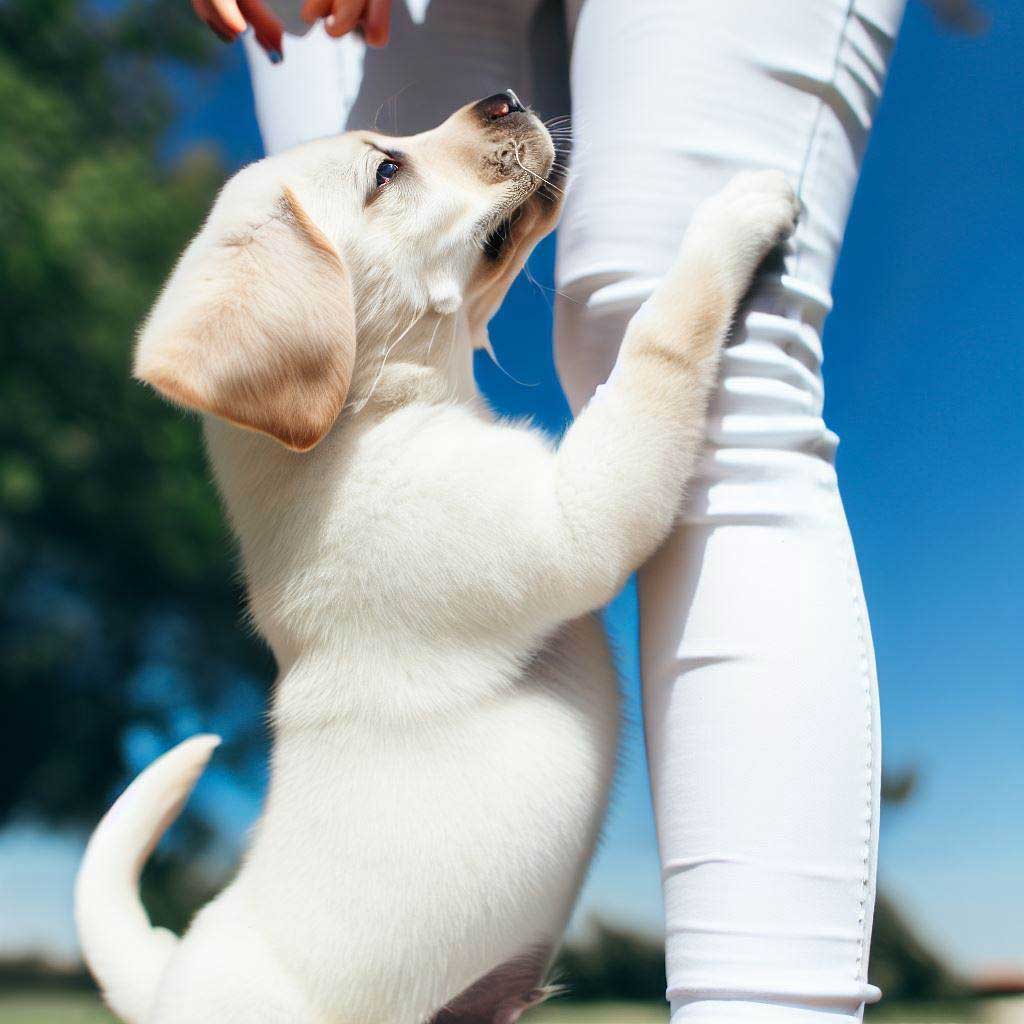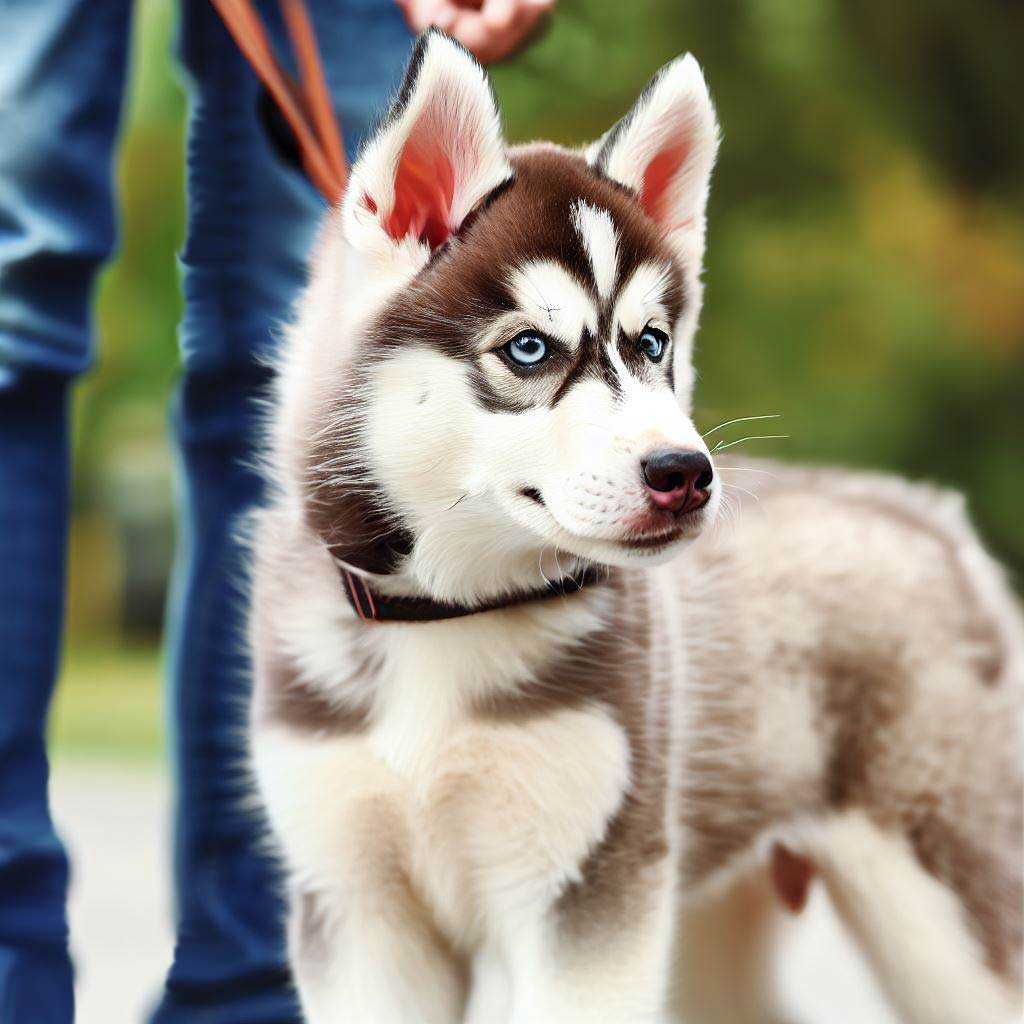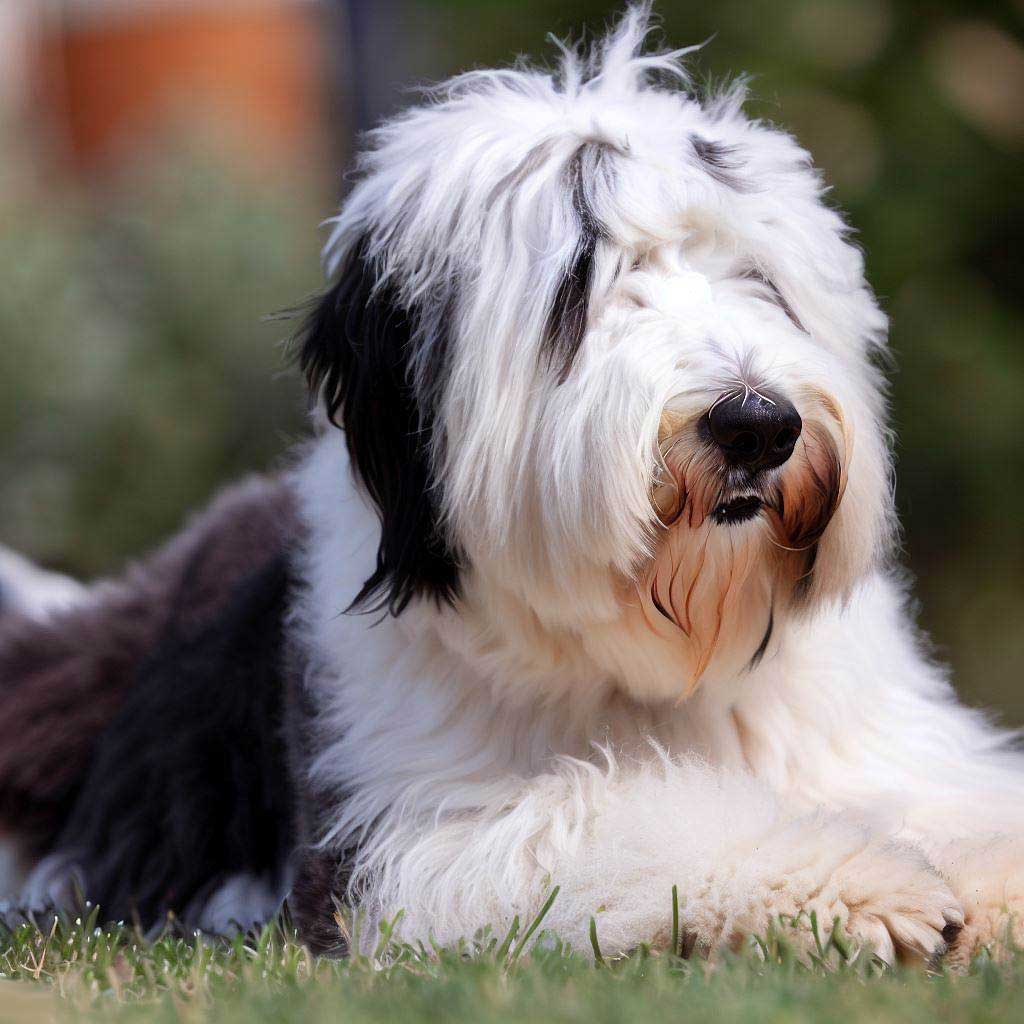Table of Contents
ToggleStop Dog From Digging: Quick Fixes Revealed. Discover simple yet effective techniques to eliminate this pesky behavior. Say goodbye to holes!
Dig No More: Effective Strategies to Stop your Dog's Digging Habit
Is your dog constantly digging up your yard, leaving a trail of destruction behind? Don’t worry, you’re not alone. Many dog owners struggle with this frustrating habit. But fear not, because we have effective strategies to help you put an end to your dog’s digging behavior once and for all.
In this article, we will delve into the reasons behind your dog’s digging habit and provide practical tips to help you address the issue. From understanding the underlying causes to implementing positive reinforcement training techniques, we will explore a range of proven strategies to discourage your dog from digging up your garden or yard.
It’s important to note that while digging is a natural behavior for dogs, excessive digging can signify an underlying problem or boredom. By identifying the root cause and addressing it appropriately, you can regain control of your outdoor space and ensure your dog leads a happy and fulfilling life.
Read on to discover the effective strategies that will help you reclaim your garden and put an end to your furry friend’s digging habits.
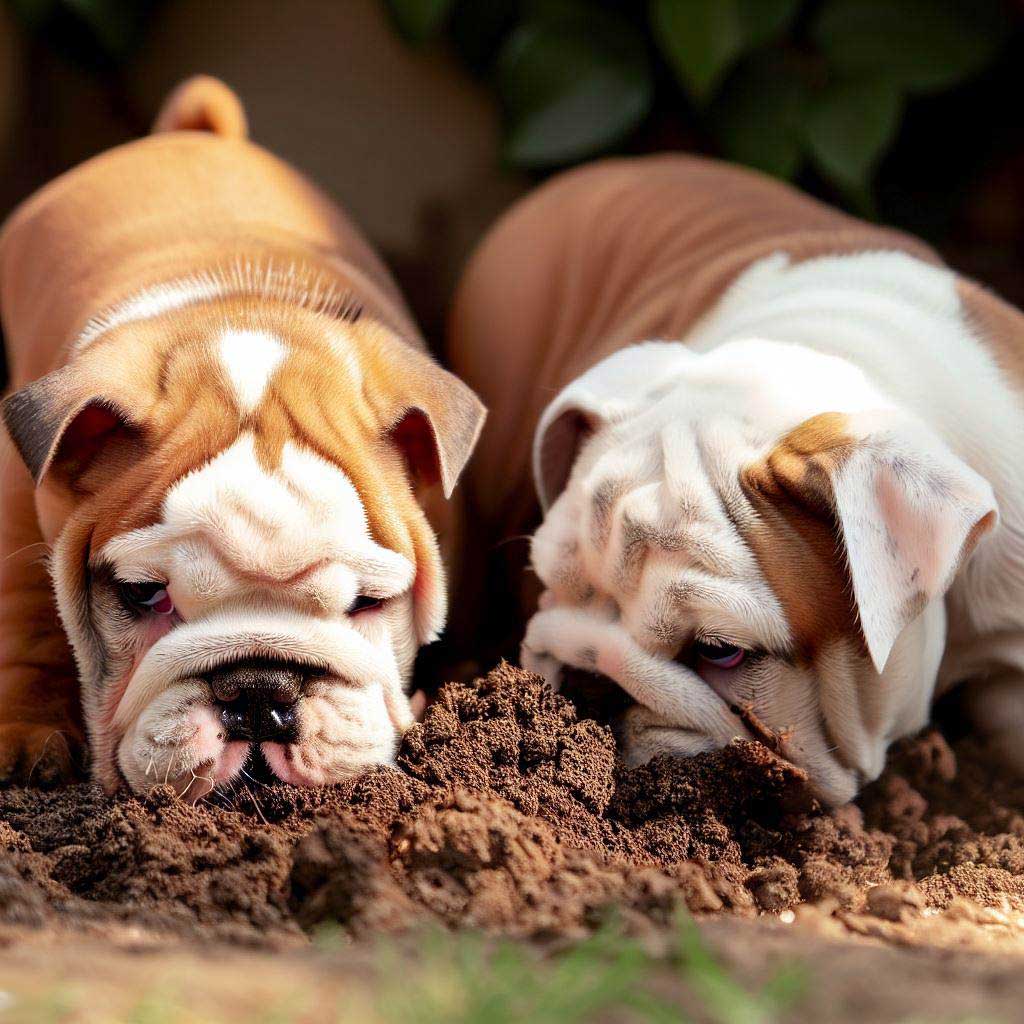
Understanding Why Dogs Dig
Dogs have a natural inclination to dig, and understanding why they engage in this behavior is crucial in addressing the issue. There are several reasons why dogs dig, including:
Instinctual behavior
Dogs have a strong instinct to dig, which is inherited from their wild ancestors. Digging served various purposes, such as creating dens, finding prey, or escaping predators. While domesticated dogs may not have the same survival needs, this instinct is still deeply ingrained.
Boredom and lack of mental stimulation
Dogs that are left alone for long periods without proper mental and physical exercise may resort to digging as a way to alleviate boredom. This behavior provides them with an outlet for their excess energy.
Seeking comfort or coolness
Dogs may dig to create a comfortable spot to lie down or escape the heat. The coolness of the soil can provide relief from hot weather, especially if your dog doesn’t have access to shaded areas.
Hunting and burying instincts
Some breeds, such as terriers, have a stronger prey drive and may dig to search for small animals or bury toys or treats. This behavior is an innate hunting instinct that can be redirected with proper training.
Understanding these underlying motivations behind your dog’s digging behavior will help you tailor your approach to address the issue effectively.

The Negative Consequences of Dog Digging
While it may be tempting to ignore your dog’s digging behavior, it’s important to recognize the negative consequences it can have. These include:
- Damage to your yard or garden: Excessive digging can ruin your carefully manicured garden or yard, leaving unsightly holes and uprooted plants. This can be frustrating and costly to repair.
- Safety hazards: Uncovered holes in your yard can pose a tripping hazard to both humans and other pets. Additionally, if your dog digs near fences or under structures, it can compromise their stability and pose safety risks.
- Escape attempts: Dogs that dig under fences or gates may be attempting to escape. This can be dangerous, as it increases the risk of your dog getting lost or injured.
- Health risks: Digging can expose your dog to various health risks, such as parasites, toxic plants, or sharp objects buried in the soil. Additionally, excessive digging can cause injuries to their paws or nails.
Considering these negative consequences, it’s essential to take proactive steps to discourage your dog from digging and provide alternative outlets for their natural instincts.
Common Reasons Why Dogs Dig
To effectively address your dog’s digging behavior, it’s necessary to identify the root cause. Some common reasons why dogs dig include:
Lack of physical and mental stimulation
Dogs that don’t receive enough exercise or mental stimulation are more likely to engage in destructive behaviors like digging. Ensuring your dog’s needs are met through regular exercise, interactive toys, and mental enrichment can help reduce their inclination to dig.
Separation anxiety or boredom
Dogs with separation anxiety or those left alone for extended periods may resort to digging as a coping mechanism. Addressing their anxiety through behavior modification techniques and providing them with interactive toys or puzzles can help alleviate their boredom and reduce digging.
Hunting or exploring instincts
Certain breeds have a stronger prey drive and may dig as a way to satisfy their hunting instincts. Engaging in activities such as scent work or obedience training can redirect their focus and provide an alternative outlet for these instincts.
Seeking comfort or coolness
Dogs may dig to create a comfortable spot to lie down or escape the heat. Providing your dog with shaded areas, cool mats, or designated digging spots can help fulfill their need for comfort and reduce their digging in unwanted areas.
Understanding these common reasons will help you tailor your approach to effectively discourage your dog’s digging behavior. Let’s explore some practical strategies to prevent dog digging in your yard.
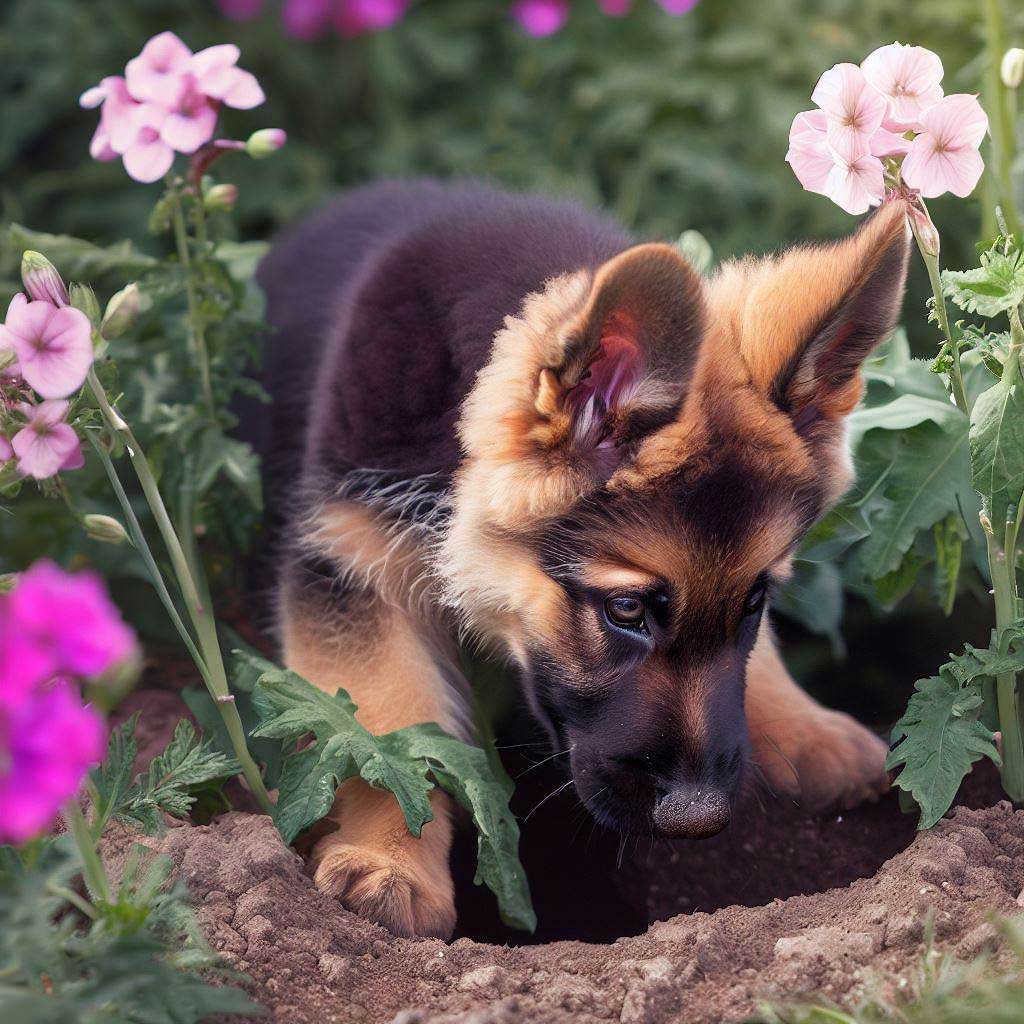
How to Prevent Dog Digging in the Yard
Preventing dog digging requires a multi-faceted approach that addresses the underlying causes and provides alternative outlets for their natural instincts. Consider the following strategies to deter your dog from digging up your yard:
1. Providing Alternative Outlets for Dogs to Dig
One effective approach to discourage digging is to redirect your dog’s natural instincts towards appropriate digging areas. Here’s how:
- Designated digging spots: Create a designated area in your yard where your dog is allowed to dig. Bury toys, treats, or bones in this area to encourage their interest. Use positive reinforcement when your dog digs in the designated spot, praising and rewarding them with treats or playtime.
- Sandboxes or digging pits: Set up a sandbox or digging pit specifically for your dog. Fill it with soft sand or loose soil and bury toys or treats for them to discover. This provides them with a controlled environment to satisfy their digging instincts without damaging your yard.
- Interactive toys and puzzles: Engage your dog’s mind and redirect their energy by providing them with interactive toys or puzzles that require problem-solving and physical effort. These toys keep their brains stimulated and provide an alternative outlet for their natural instincts.
By providing alternative outlets for your dog’s digging instincts, you can redirect their behavior and minimize damage to your yard or garden.
2. Training Techniques to Discourage Digging Behavior
Positive reinforcement training techniques can be highly effective in discouraging digging behavior. Here are some training strategies to implement:
- Interrupt and redirect: When you catch your dog in the act of digging in unwanted areas, interrupt their behavior with a firm “no” or clap your hands to get their attention. Immediately redirect them to an appropriate digging area or engage them in an activity that occupies their mind and energy.
- Reward and reinforce good behavior: Whenever you observe your dog avoiding digging or using the designated digging spot, praise and reward them with treats or verbal praise. Positive reinforcement helps reinforce the desired behavior and encourages your dog to repeat it.
- Consistency and patience: Training takes time and consistency. Be patient with your dog and consistently reinforce the desired behavior. Avoid punishing or scolding your dog for digging, as it can create fear or confusion. Instead, focus on positive reinforcement and redirection.
By implementing these training techniques, you can effectively communicate to your dog what behavior is acceptable and discourage them from digging in unwanted areas.
3. Creating a Dog-Friendly Yard to Minimize Digging
Modifying your yard to make it more dog-friendly can help minimize their inclination to dig. Consider the following yard modifications:
- Provide adequate exercise: Ensure your dog receives sufficient exercise to burn off excess energy. Regular walks, play sessions, or visits to a dog park can keep them mentally and physically stimulated, reducing the likelihood of digging due to boredom.
- Create shade and comfort: Dogs may dig to find a cool spot or to create a comfortable resting area. Provide shaded areas in your yard, such as covered patios or trees, where your dog can find relief from the heat. Additionally, provide comfortable bedding or mats for them to lie on.
- Secure fences and gates: Dogs that dig near fences or gates may be attempting to escape. Inspect your fences and gates for any gaps or weaknesses that your dog could exploit. Reinforce or repair these areas to prevent escape attempts and discourage digging near them.
- Remove temptation: Identify any specific areas or objects in your yard that seem to trigger your dog’s digging behavior. Remove or modify these temptations to make them less appealing. For example, cover exposed tree roots or barricade off-limits areas to prevent your dog from digging.
By creating a dog-friendly yard, you can minimize the motivations for digging and provide your dog with a more suitable environment.
4. Using Deterrents to Stop Dog Digging
Deterrents can be effective in discouraging dogs from digging in unwanted areas. Consider the following options:
- Bitter apple spray: Apply bitter apple spray or a similar deterrent to areas where your dog tends to dig. The unpleasant taste will discourage them from digging in those spots.
- Chicken wire or rocks: Place chicken wire or large rocks in areas where you don’t want your dog to dig. This creates a physical barrier that makes it difficult for them to dig and discourages the behavior.
- Motion-activated sprinklers: Install motion-activated sprinklers in areas where your dog tends to dig. The sudden spray of water will startle them and deter them from digging in those spots.
- Ultrasonic devices: Consider using ultrasonic devices that emit high-frequency sounds when your dog approaches certain areas. These sounds are unpleasant to dogs and can discourage digging.
It’s important to note that while deterrents can be effective, they should be used in conjunction with other training techniques and positive reinforcement to ensure long-term success in stopping your dog’s digging behavior.
5. Seeking Professional Help for Excessive Digging
If you’ve tried multiple strategies to curb your dog’s digging habit with no success, professional intervention becomes necessary. Certified dog trainers or animal behaviorists can conduct a thorough assessment of your dog’s specific behavioral patterns. Their expertise will allow them to pinpoint underlying problems and offer bespoke training strategies that fit your dog’s unique needs.
The need for professional help becomes critical when your dog’s digging turns excessive, causes property damage, or is accompanied by other worrisome behaviors. An expert can develop a comprehensive behavior modification program that considers your dog’s individual requirements and your specific circumstances.
Leverage Online Resources for Comprehensive Training
Every dog’s training journey is a unique adventure, marked by commitment, consistency, and abundant love from the owner. While the rewards of a well-trained dog are immeasurable, the path to get there often involves numerous challenges requiring patience and repeated attempts.
When Training Gets Tough, Go Digital
During particularly challenging phases, online resources can be a lifesaver. Among the plethora of online dog training advice available, specialized courses often stand out as particularly effective.
To separate the wheat from the chaff in the world of online dog training, take a deep dive into our feature article, “Best Online Dog Training Courses: Any Dog Will Love.” This detailed guide evaluates 15 exceptional courses, zeroing in on the top three that are guaranteed to bring about transformative changes in your dog’s behavior.
By following the advice and recommendations in this article, you are taking an important step towards solving challenging dog behaviors, whether it’s the stubborn act of digging or something else. Leveraging both professional help and top-notch online resources can significantly accelerate your dog’s progress, turning challenges into triumphs.
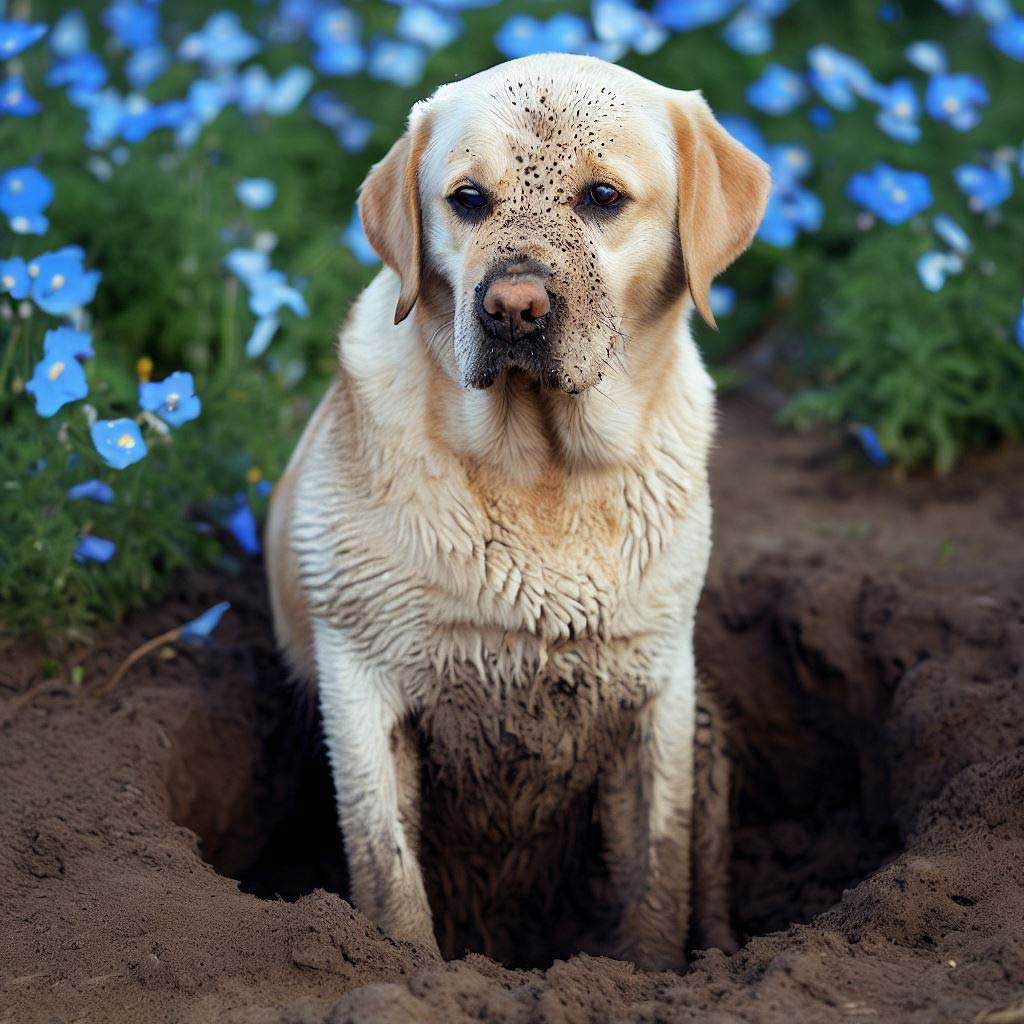
Conclusion and Final Tips for Dealing with Dog Digging
Addressing your dog’s digging behavior requires patience, consistency, and understanding. By understanding the reasons behind their digging, providing alternative outlets for their instincts, implementing positive reinforcement training techniques, and creating a dog-friendly environment, you can effectively discourage your dog from digging up your yard or garden.
Remember to be proactive in addressing the underlying causes of digging, provide mental and physical stimulation, and seek professional help if needed. With time and effort, you can reclaim your outdoor space and ensure your dog leads a happy and fulfilling life without the need to dig.
Implement these effective strategies today and say goodbye to the frustrations of dog digging. Your yard will thank you, and your dog will have a healthier and more enriching lifestyle.
For more information and tips on dog care and behavior, visit our other great articles on our website. Happy dog parenting!
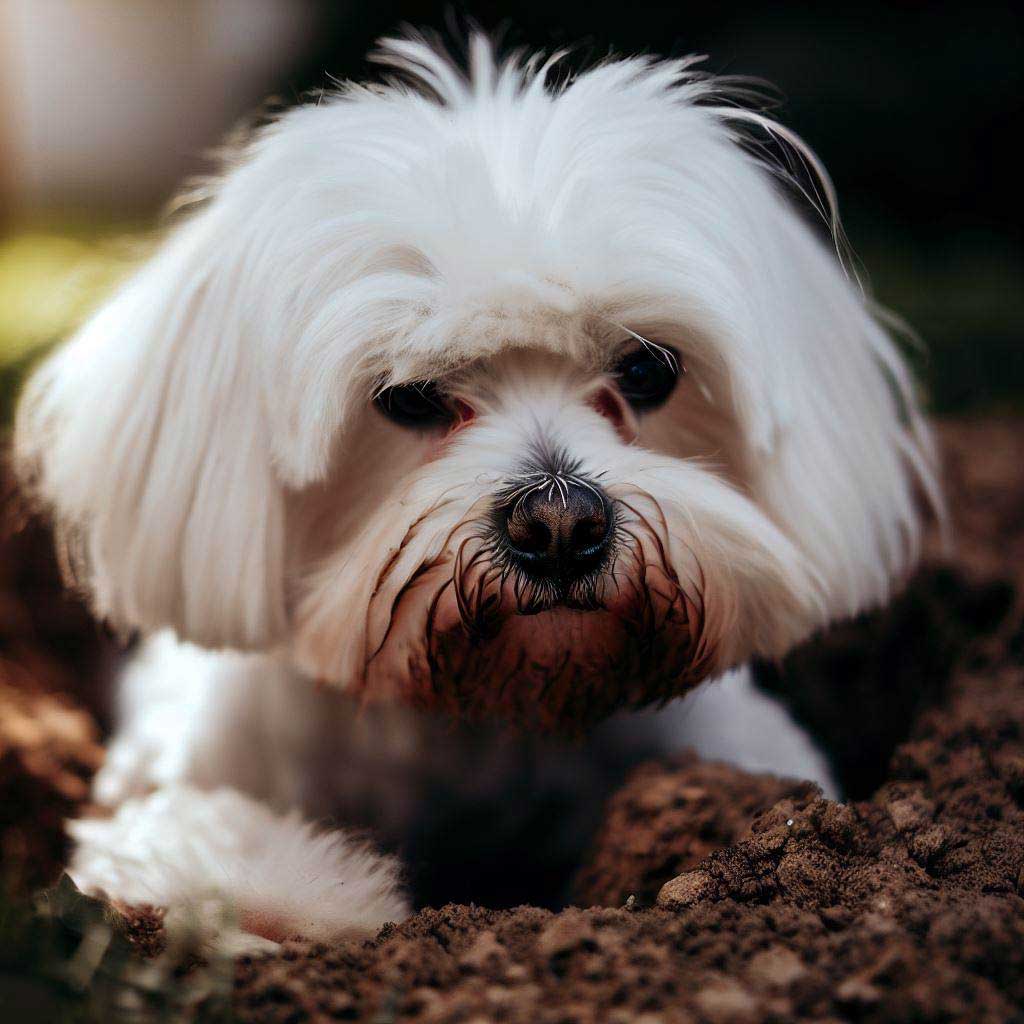
FAQ's: Stop Dog From Digging: Quick Fixes Revealed
Will spraying vinegar stop dogs from digging?
Spraying vinegar in the area where your dog likes to dig could potentially deter them. The pungent aroma is often disagreeable to dogs, so they might think twice before digging there. However, vinegar can also harm plants and the soil’s pH balance, so you must weigh the pros and cons carefully. For the best results, consider mixing the vinegar with water and spraying it on a small test area first.
Do coffee grounds stop dogs from digging?
Coffee grounds have been touted as a home remedy to stop dogs from digging, but the effectiveness varies. While some owners claim their dogs are turned off by the smell, others find no change in their pet’s behavior. In addition, coffee grounds can be beneficial for some plants but toxic to others, so research your specific flora before applying them.
What smell repels dogs from digging?
Various smells repel dogs, from citrus to vinegar to ammonia. Keep in mind that strong smells can sometimes be irritating or harmful to dogs, especially if ingested or applied directly to the skin. Experiment cautiously and always check with your vet to ensure the scent you choose is safe.
How do I stop animals from digging holes in my yard?
To prevent animals from digging holes in your yard, you could use physical barriers like chicken wire or specialized fencing. Some folks opt for scent-based deterrents like garlic, peppermint oil, or commercially available sprays. These methods have had varying success rates, and it might take some time to find the one that works best for your yard’s unique animal visitors.
How do you make homemade dog deterrent spray?
Creating a homemade dog deterrent spray is usually a blend of water with a strong scent like lemon juice, vinegar, or essential oils. Mix the ingredients in a spray bottle and test it on a small patch of your yard first to ensure it won’t damage your plants. Make sure to consult your vet about the ingredients to verify they’re safe for your pet.
Does lemon juice stop dogs from digging?
Lemon juice can serve as a deterrent because many dogs find the citrus scent unpleasant. Spraying diluted lemon juice around the area where your dog digs might discourage them from continuing. However, citrus can be irritating to some dogs and detrimental to plants, so always patch-test before widespread use.
What smell do dogs hate the most?
Common scents that dogs generally dislike include citrus, vinegar, and strong spicy odors like cayenne pepper. Different dogs have different sensitivities, so one universally hated smell doesn’t exist. Always remember that what is merely unpleasant for some dogs could be harmful to others, so consult your vet before using any scent-based deterrents.
What scent do dogs hate?
Dogs usually aren’t fans of strong, pungent smells like citrus, vinegar, and peppermint. However, sensitivities can vary from dog to dog, so it’s important to test any deterrents cautiously and always consult your vet for advice tailored to your pet’s specific needs.
How do I fill my dog’s holes in my yard?
Filling your dog’s holes requires more than just shoveling dirt back in; you’ve got to make it unappealing for future digs. Try placing a large rock in the hole and covering it with soil and grass seed. Your dog is less likely to dig if they encounter a hard, immovable object.
What is the best homemade dog repellent?
The most effective homemade dog repellent often involves a combination of vinegar or citrus with water. These are usually safe for dogs and plants if applied cautiously. As always, consult your veterinarian for advice tailored to your specific dog’s breed and health status.
Does peppermint deter dogs from digging?
Peppermint has been reported to deter dogs from digging due to its strong smell. You could try adding peppermint essential oil to a spray bottle with water and applying it to the problem areas. Always perform a patch test first to ensure it doesn’t harm your plants or irritate your dog.
Does cayenne pepper keep dogs from digging?
Cayenne pepper is often recommended as a deterrent for dogs. Its spicy smell and taste are usually too intense for a dog’s sensitive nose and palate. However, be cautious—cayenne can be irritating to a dog’s eyes, nose, and skin.
What deters dogs from your yard?
To deter dogs from entering your yard, you could employ fencing, use commercial dog repellents, or set up motion-activated sprinklers. Some people also have success with scent barriers like garlic cloves, vinegar, or even lion dung from the local zoo!
Is cayenne pepper bad for grass?
Cayenne pepper typically does not harm grass; however, it can be harmful to other plants and even your dog. Use it cautiously, applying it in small areas first to test its impact.
Is there a smell that keeps dogs away?
Ammonia is a powerful smell that can act as a deterrent for dogs. However, ammonia can also be very harmful if ingested or inhaled in large amounts, so use it with caution and always in well-ventilated areas.
What does vinegar smell do to dogs?
The smell of vinegar is generally off-putting to dogs and can act as a deterrent. However, too much vinegar can irritate a dog’s eyes and nose, and ingesting it can lead to stomach issues. Always use it in a well-diluted form and consult your vet before extensive use.
Is vinegar bad for dogs?
Vinegar in small, diluted amounts usually isn’t harmful to dogs and is often used in homemade cleaning solutions and dog repellents. However, concentrated vinegar can irritate the skin and digestive system, so always consult your vet before using it as a deterrent.
Don’t miss my upcoming article, “Training Senior Dogs: Effective Strategies,” where we delve into the essentials and beyond to energize your older dog’s training and agility regimen. So, get your favorite brew ready—be it coffee or tea—and prepare to elevate your senior pup’s training journey.
If you’re intrigued by the psychology of dog training, my comprehensive guide “How to Use a Clicker to Train a Dog: Explained” is a must-read. This article demystifies the science behind clicker training and offers step-by-step instructions to incorporate this powerful tool into your own training regimen. Make sure to add it to your reading list.
Last but not least, if you’re at your wits’ end with constant barking, you’ll find solace in my latest piece, “Reducing Excessive Barking: Strategies to Quiet the Chaos.” This article delves into the root causes of persistent barking and equips you with actionable strategies to bring about that much-needed peace and quiet. Don’t miss out on “Reducing Excessive Barking: Strategies to Quiet the Chaos” for a serene home environment.

